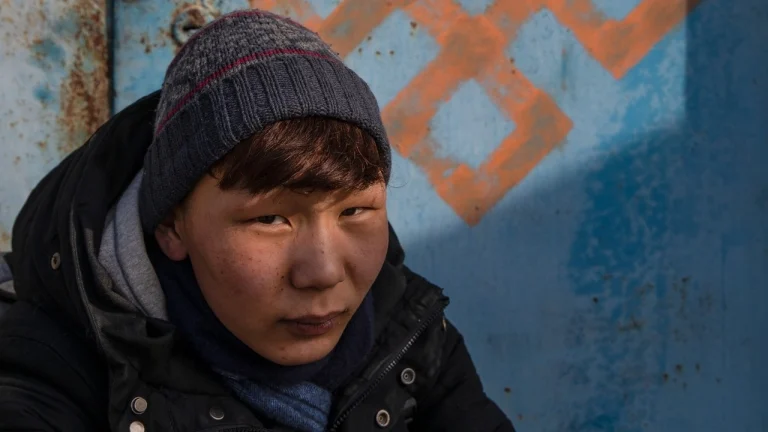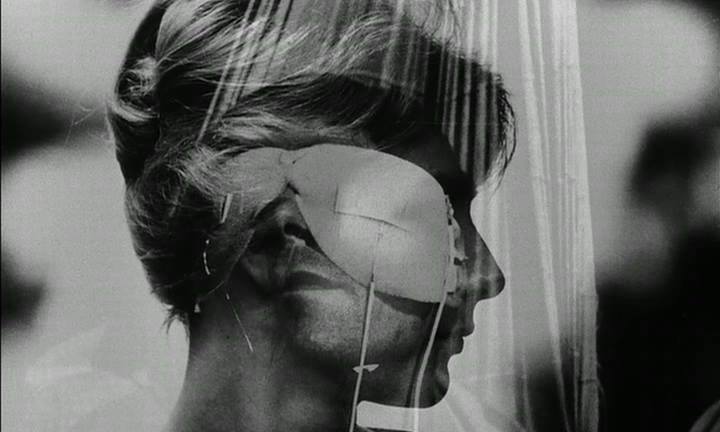Life (2021) Short Film Review: In a much-awaited turn of events, Iranian filmmaker Jafar Panahi‘s 14-year-long travel ban was lifted. He recently protested against the arrest of Mohammad Rasoulof and Mostafa Aleahmad, fellow contemporary directors who filmed the connection of Government corruption and the collapse of the ten-story building in South-west Iran that officially killed 41 people. Panahi is one such filmmaker who thrives on critiquing the oppressive regime of his homeland.
His characterization and treatment of the filmic genre are prevalent in open-ended renunciations on the questions of social mobility, suicides, women’s rights, or the dichotomy between children’s realities and the realism of the camera, as shown in The White Balloon (1995) or The Mirror (1997). However, his laudable attempts at showing humane implications were abruptly terminated when the authorities decided to push him into complete house arrest, imposing a ban on making films or giving interviews for twenty years, long after he had attained considerable international recognition.
Life, his 2021 short, comes out of this absurdist phenomenon of being locked up in his house during the Pandemic, when he had already been banished in a political milieu. The short film of 19 minutes opens with the director’s frightened wife, who finds a white uniform-clad person repeatedly ringing the doorbell. The scared atmosphere is justified when examined alongside the dearth of safety in the latent police state and the uncertain visits from the Corona Unit. He opens the door only to find his nonagenarian mother eagerly awaiting their reception and hospitality.
Forlorn with the dire stress of COVID-19 panic, she declares that she had washed her dress thrice and blames Iggy, Panahi’s pet iguana, claiming that Corona was apparently ‘an animal-transmitted disease.’ The slowness of the iguana becomes a caricature in the film, developing an obstruction of perceptions and opening up a distance that correlates with the time it takes for the grandma to adapt to its presence. Grandma scares it away with her cane, declaring a presentiment that prevents the pet from coming near her.
Jafar Panahi, with his static hand-held camera, records the timely incapacity of his mother to acculturate her prejudices with the acclimatized member of the family. Iggy had grown into the household alongside their depredations, mannerisms, and routines. The Mother saturates the space with her Otherness, a sort of yearning to loathe the sanctity of an order with a decadent rupture, created both by the presence of an alien virus and an ‘extraterrestrial’ iguana.
Grandma is put on FaceTime with Panahi’s daughter Solmaz, recounting the lullabies she sang when Solmaz was a nascent addition to their home. She reiterates the capacities of engagement with her by recalling the tunes: “My daughter, my sweet daughter/ new sign of life in our household./ My violet of Arbedil/ my honey of Sabalan”. The exchange is intimate until the effect of the ‘foreignness’ of the virus comes into question. The Grandma complains that no one comes to see her because they fear getting infected. Solmaz tries to convince her that they wish to look after her health and try not to infect her. The obligation of both parties is sincere but compliant with the unfamiliar form of the infection, so much so that it results in a breakdown.
When Grandma confesses, ‘I am willing to die for you,’ Solmaz repeats after her. But, this acts as a warning against the temperate conditions of conservatism practiced by Grandma. She starts lamenting the decision to send Solmaz to a foreign country for her higher education. Jafar Panahi plays with the non-native strangeness that can be effective in one’s own house simply because acceptability takes a long time to reassure itself of its own peculiarity.
The evidence of constant flux is a distant reality for Grandma, resulting in a distaste for the ‘little green man,’ an outlandish creature who disturbs the equanimity of the ‘manly house.’ ‘Life,’ in short, is fleeting. The more you advance on the travesties, the more you are caught in the net of your own status as an ‘emigre.’ Jafar Panahi puts close-up shots when the contemplative Grandma seeks out an answer to the plethora of naivete created around her.
Solmaz, being a sensitive person, warns about the cane’s vibrations on the floor being equally scary for Iggy as a direct hit on his body. The encapsulated moments visualize the extraneous creature in a melancholic interspace between hate and love. The following scenes show Grandma dividing her jewelry for her grandchildren’s marriages – “Which one did I miss? Hadi, Houman, Majid”. The certainty of her death and the mischance of the perishing of her husband are intermingled to bring alive the mythical ‘Fear Prayer of the First Night.’
The leaking catastrophe calms down only when Panahi’s wife starts grinding vegetables for Iggy, the iguana. The food unites Grandma and ‘him’ as both have lost their teeth, and they ‘both got old.’ This tempts her to let go of her cane and build up the courage to accompany Iggy in her final years. The film, nominated for the DocAviv Film Festival in 2022, musters up a radically compassionate voice of a director, succinctly resisting his house arrest by fortressing himself with new ‘life.’ His film envelops the ‘little narratives,’ mindfulness that desists ‘acting out’ in front of a camera. Tehran’s ‘upsetting’ cacophony is blinded for the audience in a disposition of an overemphatic silence – a locked house, an invisible infection, a demonic pet, and an obscurantist encounter, all of which end up in a life bound with love.

![Je suis Karl [2021] Netflix Review: Potent political thriller falls short due to uneven and heavy-handed execution](https://79468c92.delivery.rocketcdn.me/wp-content/uploads/2021/09/Je-Suis-Karl-1-highonfilms-768x432.jpg)

![This Is Not What I Expected! [2017] – NYAFF Review](https://79468c92.delivery.rocketcdn.me/wp-content/uploads/2017/07/This-is-not-what.jpg)


![Meat me Halfway [2021] Review – An insightful documentary about reducetarian habit of food consumption](https://79468c92.delivery.rocketcdn.me/wp-content/uploads/2021/07/Meat-Me-Halfway-white-oak1-768x432.jpg)